- Home
- Jeremy Robinson
Savage (Jack Sigler / Chess Team) Page 2
Savage (Jack Sigler / Chess Team) Read online
Page 2
This time, David did not hesitate. He fell into step behind the others, and together they plunged deeper into the foggy void between the branches. Time passed differently under the jungle canopy. It seemed to David that hours went by, and yet his body said otherwise. If indeed he had been running for hours, he would have collapsed from thirst or exhaustion. The jungle was a strange, alien environment, where nothing was familiar and everything looked identical. They might have been traveling in circles or venturing deep into a part of the world where no man had ever trod. David didn’t know which prospect was more terrifying.
Soon, the sound of running water filtered through the ambient noise of jungle birds and colobus monkeys. They were nearing a river. Not the Congo—they were too far east for that—but certainly one of its tributaries. If they followed the river, they would eventually find an outpost.
The others quickened their pace, searching for the elusive stream that would guide them back to civilization. The rushing noise grew louder and then abruptly became deafening, as they emerged from the woods on the edge of a pool that lay at the base of an enormous waterfall.
David had seen the falls at Kisangani and Ubundu—short drops that spanned the broad width of the Congo—but this was much different. This waterfall was high, perhaps a hundred feet or more, but half as wide. The water fell in a thin veil, which did not so much crash into the pool below as simply pour, like the flow from a well pump’s spigot. The pool was similarly small, draining away in a small stream only a few feet across. The water above the fall was almost certainly the result of the rain. The fall, the pool and the stream might not even exist in dry weather, and that meant there was no guarantee that following the stream would take them anywhere.
Christophe pointed toward the fall. “There! Do you see it?”
David saw nothing but a translucent wall of water and darkness beyond.
“We can hide there. Behind it.”
David still didn’t see what Christophe saw, nor was he altogether certain that hiding was even necessary. Were the government forces still following them? He couldn’t imagine that they would go to so much trouble to hunt down a handful of rebel conscripts. Christophe didn’t wait for him to answer, but hurried to the edge of the pool and skirted it until he was nearly under the falls. The other young rebel remained with David, watching as their comrade cautiously parted the curtain of spray and vanished from sight.
A moment later, Christophe appeared again. His face was alight with wonder. “Come! You won’t believe this.”
David stared into the darkness behind the falls. His earlier trepidation returned. The darkness behind the waterfall was like the jungle, a place where human beings did not belong. The other young man evidently felt no such hesitancy. He struck out toward the waterfall and whatever lay beyond, leaving David alone with his fears.
For a long time, David stood there, watching the water pour down. Christophe and the other boy did not emerge, and David was starting to worry about them. There had been no sign of their pursuers. Perhaps the mercenaries were as lost as they now were, or perhaps they were wise enough not to venture into the uncharted jungle. Regardless, there was no reason for them to hide. They would be better off getting their bearings, settling on a destination and moving out before night fell and the jungle predators began to hunt.
He edged toward the fall. “Christophe! Are you there? Come out!”
There was no reply, but of course how could they hear him? The cascading water drowned out his voice.
He moved closer, along the edge of the pool. The water looked like quicksilver, a rippled mirror reflecting a turbulent sky. He called out again. When there was no reply, he ventured close enough to the fall that the spray showered him like raindrops. A narrow lip of rock protruded out from behind the fall, slick with moisture and moss, just wide enough to stand on.
“Christophe!”
He reached out a tentative hand, touching the water the way he might pet an unfamiliar dog. Despite the height from which it fell, the water felt soft against his fingertips. Emboldened, he took a great step forward and felt the water pass over him like a baptism.
It was dark on the other side, but enough light filtered through the fall for him to immediately see that this was no mere cave. He stood there, incredulous, unable to believe that a place such as this could really exist.
His amazement caused him to forget for a moment why he had feared to enter, but a shriek from somewhere in the shadowy depths of the hidden world brought him back to the moment. He opened his mouth to call out again, but before he could, a figure broke free from the darkness. It was the other young rebel. He was covered in something dark and wet, and even from a distance, David could see the pure terror in the rebel’s eyes as he ran. A second figure moved into view behind the fleeing youth.
Not Christophe.
David spun away, plunging through the veil of water. He fell face down in the pool. It was far deeper than he would have believed, and for a moment he was held down by the weight of the falling water. Panic seized him and he clawed for the surface, desperate to put as much distance between himself and the waterfall as he could. A few seconds later, he splashed up onto the shore of the pool and got his feet under him.
He looked back just once, wondering if the horror he had beheld would emerge from that wondrous hidden place. There was no sign of it, but that was of little comfort to David. He turned away and ran back into the woods. He ran until he collapsed from exhaustion.
When his strength returned, he ran more.
1
Suez, Egypt, 2014
It was a day like any other in the Arbaeen district of the canal port city of Suez. Cars moved about on the streets, in a hurry to get wherever they were going. Pedestrians ambled about less purposefully on the roadside, or when necessity dictated, risked a mad dash through traffic to reach the other side. People idled in coffee shops, purchased kebabs from street vendors, and perused the wares of merchants. Only a few of those meandering about were locals. At the canal’s end, the population of Suez fluctuated daily with tourists, sailors and passengers debarking for a day ashore, while they waited for their vessels to make the long passage through to the Mediterranean Sea or to meet a ship heading south, toward the Red Sea.
The locals barely even noticed the appearance of five more strangers.
They did not arrive together, nor did they appear to even be aware of each other. There was the young couple. European tourists. He spoke halting English with lapses into German, and she spoke halting English with lapses into French. Most of the Arab merchants spoke a smattering of English, so communication was not that difficult. The man, who was broad and tall, had close-cropped blond hair with a long goatee, and he wore dark Oakley sunglasses. He looked like he might belong to an American motorcycle gang. The woman was quite a bit shorter, and very shapely. It was difficult to tell if she was beautiful, because she was mostly covered up by a hijab and sunglasses that matched her boyfriend’s. It was a bit unusual for a Western tourist to wear the ceremonial head scarf, but not enough so to make the locals take note. The pair bought some food and bottles of Orangina at a shop. At another, the man bought his girlfriend an Egyptian cartouche pendant.
Then there was the Chinese photographer, or at least everyone assumed he was a photographer, because he was lugging around a huge camera case. He also spoke halting English, and asked everyone he met whether they knew a good place to take photographs of ships entering and leaving the canal. When the question was answered, he would stare back, uncomprehending, through his dark sunglasses. Then he would wander off in the wrong direction, leaving the locals to scratch their beards in amusement.
The last two strangers appeared to be Arabs. They had swarthy complexions, thick dark hair and beards, and spoke perfect, if slightly old-fashioned, Arabic. The smaller of the pair did most of the talking. Smaller, in this case was a relative term, because at just over six feet in height, he was taller than most of the locals. Nevertheless, h
e was dwarfed by the other man, who was a good head taller and built as solidly as the pyramids. The two men did not attempt to question the locals or strike up conversation, but merely sipped their coffee in the shadow of an awning. From time to time, the smaller man would check his wristwatch—a closer look would have revealed a vintage 1967 Omega Speedmaster Professional—while the larger man mostly looked straight ahead, almost statue still. Like most Egyptian men, they eschewed traditional Arab attire for modern trousers and cotton shirts. The big man’s muscles strained the fabric of his. Curiously, both were wearing dark sunglasses just like the others.
The sunglasses connected the five visitors in more than just a symbolic way. In addition to concealing their eyes, each pair of Oakley Half-Jacket 2.0 sport frames also hid a miniature Bluetooth wireless device that was linked to a next-generation quantum smartphone. The superior processing and data transfer speed of the quantum computers, which were an order of magnitude faster than anything commercially available, meant that each member of this group of visitors could send and receive real-time audio and video instantaneously. Because the processor used quantum entanglement, any lag of signal transmission was too minute to be measured. Nor was there any need for encryption. The transmission was not broadcast using radio waves, so there was no way for anyone to intercept it.
Images were recorded by a high-def camera in the nose-piece of each pair of glasses. They were viewed using a virtual, retinal-display projection system that beamed the video feed directly into the wearer’s eyes. From his perch on the roof of a three story building near the port, the man the locals had dismissed as the ‘Chinese photographer’ was able to see everything that the others could, and in turn, he was able to share his unique perspective with them. That, however, was only the beginning of what was possible with the technology in the glasses.
Even a cursory look around was enough to transmit a wealth of data into the shared network. The information was also transmitted instantaneously to a mainframe on the other side of the planet. A sophisticated facial recognition program compared every single face that passed in front of the cameras against a dozen different databases, including several international terrorist watch lists. The information could be displayed visually if so desired, but at present it was enough to simply overlay the results of the facial recognition scan. Each person that entered into the virtual environment had a tiny icon right above their head: a green dot if a positive identification was made and the person was free of suspicion, a yellow dot if no identification was possible and a red dot if a person was of special interest.
“I think I’ve been out in the sun too long. All I can see is a lot of yellow spots.”
The man on the roof smiled. He heard the voice as clearly as if the speaker were standing next to him, right down to the trace of a New England accent on some of the vowels. But if someone had been standing right next to him, they would have heard nothing at all. The sound was not played through ordinary electronic speakers, but instead utilized a technology called ‘bone conduction’ to transmit sound waves from tiny metal probes in the ear pieces of the glasses, directly into the skull of the person wearing them.
The statement wasn’t completely accurate however. While there was a sea of yellow dots, all marking people whose identities remained unknown, there were four tags that were neither yellow nor dots. The icons marked the four other visitors, and if it were possible for the man on the roof to see himself, he would have found a fifth icon floating above his own head—virtually speaking at least. These markers were a bright royal blue, but each one was different. Each one was the likeness of a chess piece.
“Seriously,” the same voice continued. The speaker was Stan Tremblay, but when he was working—as he was right now, albeit disguised as the German tourist—he was simply: Rook. “What good is facial recognition technology if it doesn’t recognize any faces?”
The man on the roof nodded in silent agreement. His name was Shin Dae-jung—his nom de guerre was Knight—and he was not Chinese. Ethnically, he was Korean, but he had been born in the United States and considered himself, first and foremost, an American. Nor was he a photographer. His camera case contained a disassembled Chey Tac Intervention .408 sniper rifle. It was the tool of his trade, and he had been practicing his trade a long time, without any help from quantum computers and high-tech sunglasses.
“He’s right, Blue,” another voice said. “If the FRS is just going to show us a lot of yellow dots, then we’d be better off without it.”
Knight was surprised to hear King supporting the wise-cracking and generally rebellious Rook. King, also known as Jack Sigler, was the field leader of the group, and he was usually the calm voice of reason. He was the shorter man presently disguised as an Arab, sipping coffee at the outdoor café. He wasn’t an Arab, but his thick black hair, strong features and skin bronzed by years—a lot of years—in the sun, along with his uncanny mastery of the Arabic language, enabled him to easily pull off the deception.
Eight years ago, King had been an officer in the US Army Special Forces Operational Detachment D, better known as Delta or simply ‘the Unit.’ Circumstances, in the form of a crisis that threatened the safety of the entire planet, had brought the five of them together from different military special operations backgrounds, to form what King had called the ‘Delta of Delta’—the elite of the elite, a new team answerable only to the president. The Chess Team. Since then, they had faced threats beyond comprehension—dangers that were the stuff of science fiction—and King had always guided them with a steady hand, no matter what the world threw at them. Except that after their last mission, where they finally, once and for all, dealt with rogue geneticist Richard Ridley, King just didn’t quite seem like himself anymore.
“Egypt doesn’t have a centralized picture ID database,” a new voice explained. The speaker was not one of the five—in fact, he was in a command center on the other side of the world—but he was nevertheless an essential member of Chess Team. His callsign was Deep Blue—a nod to the marvelous chess-playing computer that had performed the impossible, by beating the then-reigning world chess champion, Garry Kasparov, in 1997. Deep Blue’s real name was Tom Duncan, and he had once been the President of the United States. In his role as chief executive, he had created Chess Team, and he’d personally overseen their missions, anonymously at first, until necessity had forced him to sacrifice his presidency to save the nation he had sworn to serve. Giving up the Oval Office had enabled Deep Blue to devote himself full time to leading the team. The organization that had begun with the team was now a separate entity from the military, operating from their new headquarters in the White Mountains of New Hampshire.
“But we know what the target looks like,” Deep Blue continued, “so just ignore the yellow dots and keep your eyes peeled for a red one.”
The other members of the team—Queen and Bishop, respectively—did not add their input.
Queen was Zelda Baker, and while she pretended to be a tourist, there was no pretense to her relationship with Rook. Knight had known her before they were both recruited to Chess Team. She wasn’t just the toughest woman he’d ever met, but she was also one of the toughest human beings on the planet. Pain and suffering were like fuel in her engine. She had joined the Army to burn away the memories of her traumatic childhood, and by surviving the two-month long trial-by-fire that was US Army Ranger school—the first woman to ever do so—she had succeeded. She had emerged stronger and harder than seemed humanly possible. It had only been in the last year or so that her old emotional scars had begun to fade, and that owed in no small part to her burgeoning relationship with Rook.
The other quiet member of the team, Bishop—also known as Erik Somers—was the enormous man sitting across the café table from King. Bishop was Iranian by birth, but he had been raised from infancy in the United States by adoptive parents. That he spoke some Arabic, as well as Farsi, Dari and a smattering of other tongues common to the Middle East, was only because of hours of
immersive language instruction—American English was his first language.
Like Queen, Bishop carried a lot of emotional baggage. The only thing stronger than the simmering anger that had boiled in his heart from his earliest memories, was his extraordinary self-control, but the cost for that control was a stony, silent demeanor that repelled other people like a force-field. His size and his ability to unleash that fury made him a very effective member of the team. But it left him as isolated as a monk, when it came to personal relationships.
The delicate balancing act between rage and self-control had nearly reached critical mass a few years earlier, when Manifold Genetics had injected Bishop with an experimental regenerative serum that had made him effectively invincible. An unfortunate side effect of the serum was that its regenerative properties stimulated a primal fury, which had turned most test subjects into rabid beasts. Bishop’s lifelong struggle to keep his anger in check had enabled him to do the impossible—to heal from even mortal wounds, without losing his sanity. The serum had eventually been purged from his body, evidently removing the good effects along with the bad, but the damage to his already compromised psyche would not be so easily taken away.
They had all changed a lot over the last eight years. Some of the changes had been good, like Queen’s and Rook’s deeper relationship, but they had all made sacrifices. There was really no such thing as an ordinary life when you were tasked with saving the world from things that even the US military couldn’t handle.
The present crisis was almost run-of-the-mill by comparison to their typical day at the office. A Yemeni terrorist named Hadir al-Shahri had acquired a Russian-made RA-115 tactical nuclear weapon—a one kiloton yield ‘backpack nuke.’ Hadir was a known cell leader for Al-Qa’ida in the Arabian Peninsula (AQAP), and he had personally been involved in some of the most noteworthy international terror incidents, post-9/11. AQAP was playing the long game. They were not content to merely terrorize, but rather they had their sights set on destabilizing the existing political structure of the Middle East, removing the influence of Western nations and multinational corporations and ushering in a new Islamic age. It was almost a certainty that, if Hadir had indeed purchased a nuke, he would use it. The only unanswered question was the matter of target.

 Alter
Alter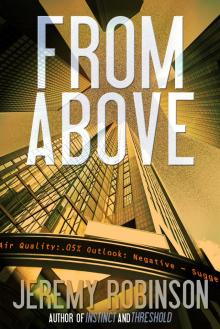 From Above - A Novella
From Above - A Novella Flux
Flux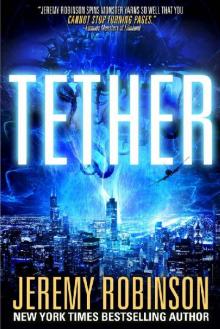 Tether
Tether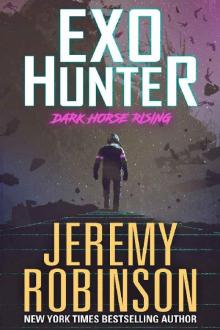 Exo-Hunter
Exo-Hunter Pulse
Pulse Cannibal
Cannibal Omega: A Jack Sigler Thriller cta-5
Omega: A Jack Sigler Thriller cta-5 Flood Rising (A Jenna Flood Thriller)
Flood Rising (A Jenna Flood Thriller)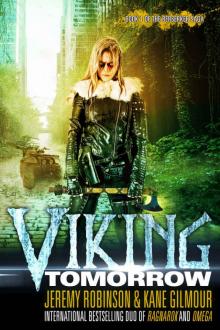 Viking Tomorrow
Viking Tomorrow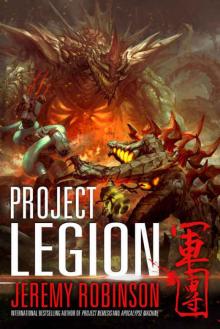 Project Legion (Nemesis Saga Book 5)
Project Legion (Nemesis Saga Book 5) BENEATH - A Novel
BENEATH - A Novel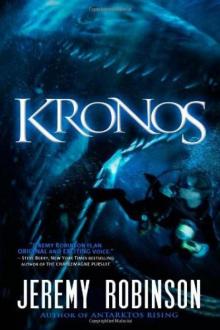 Kronos
Kronos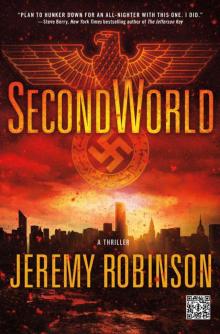 SecondWorld
SecondWorld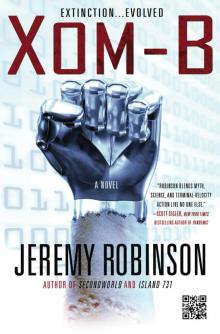 XOM-B
XOM-B Forbidden Island
Forbidden Island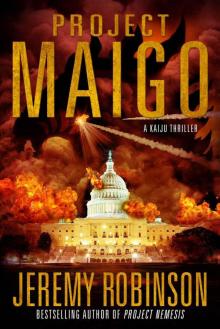 Project Maigo
Project Maigo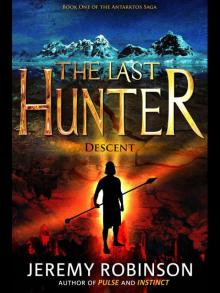 The Last Hunter - Descent (Book 1 of the Antarktos Saga)
The Last Hunter - Descent (Book 1 of the Antarktos Saga)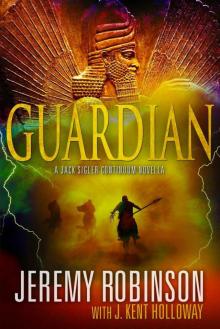 Jack Sigler Continuum 1: Guardian
Jack Sigler Continuum 1: Guardian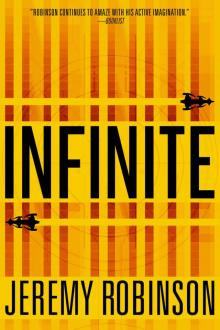 Infinite
Infinite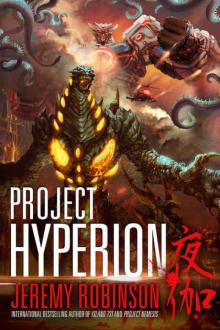 Project Hyperion
Project Hyperion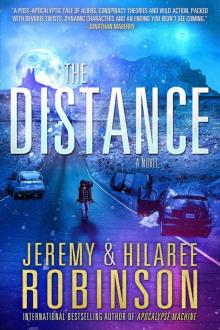 The Distance
The Distance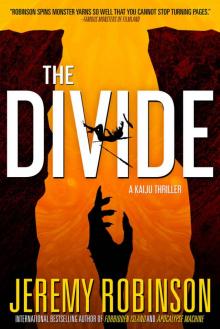 The Divide
The Divide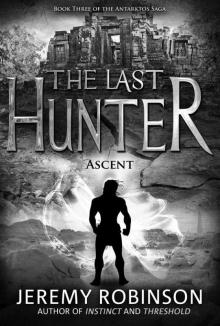 The Last Hunter - Ascent (Book 3 of the Antarktos Saga)
The Last Hunter - Ascent (Book 3 of the Antarktos Saga)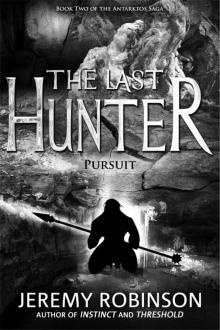 The Last Hunter - Pursuit (Book 2 of the Antarktos Saga)
The Last Hunter - Pursuit (Book 2 of the Antarktos Saga)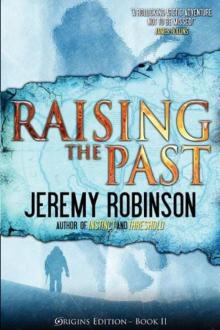 Raising the Past
Raising the Past The Others
The Others The Last Hunter - Collected Edition
The Last Hunter - Collected Edition Threshold
Threshold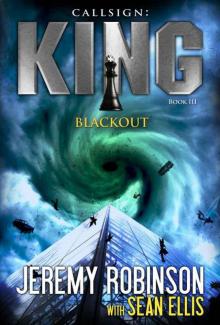 Blackout ck-3
Blackout ck-3 Antarktos Rising
Antarktos Rising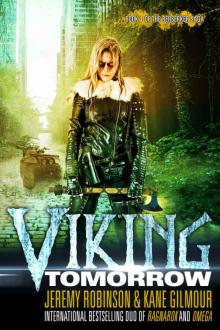 Viking Tomorrow (The Berserker Saga Book 1)
Viking Tomorrow (The Berserker Saga Book 1) The Didymus Contingency
The Didymus Contingency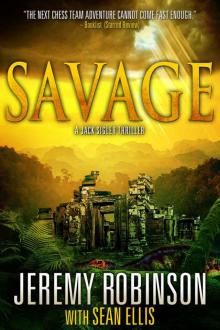 Savage (Jack Sigler / Chess Team)
Savage (Jack Sigler / Chess Team)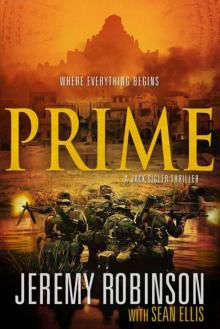 Prime
Prime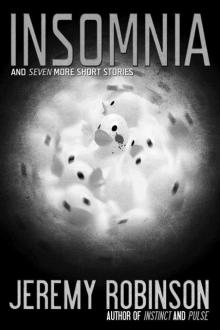 Insomnia and Seven More Short Stories
Insomnia and Seven More Short Stories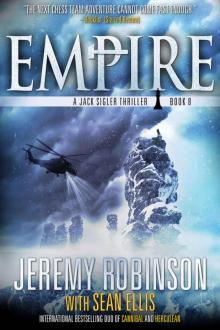 Empire (A Jack Sigler Thriller Book 8)
Empire (A Jack Sigler Thriller Book 8)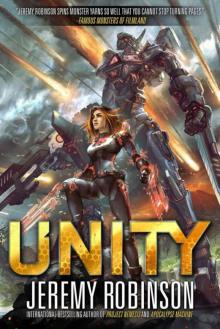 Unity
Unity Instinct
Instinct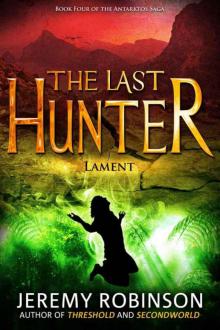 The Last Hunter - Lament (Book 4 of the Antarktos Saga)
The Last Hunter - Lament (Book 4 of the Antarktos Saga)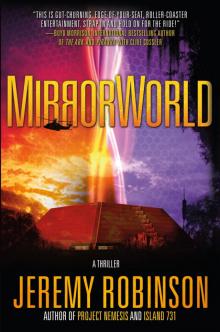 MirrorWorld
MirrorWorld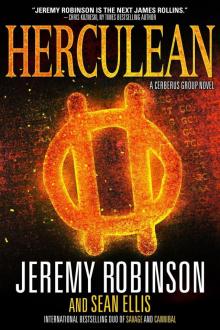 Herculean (Cerberus Group Book 1)
Herculean (Cerberus Group Book 1)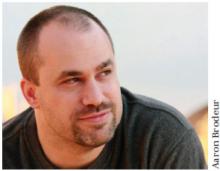 Island 731
Island 731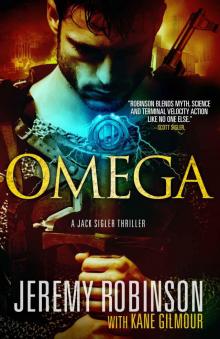 Omega: A Jack Sigler Thriller
Omega: A Jack Sigler Thriller Patriot (A Jack Sigler Continuum Novella)
Patriot (A Jack Sigler Continuum Novella)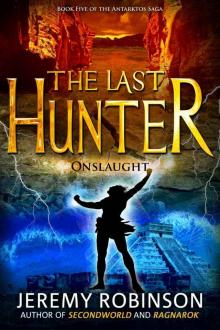 5 Onslaught
5 Onslaught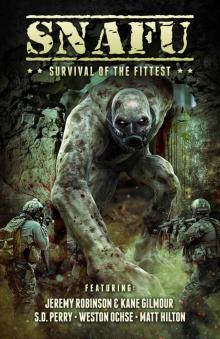 SNAFU: Survival of the Fittest
SNAFU: Survival of the Fittest Helios (Cerberus Group Book 2)
Helios (Cerberus Group Book 2)